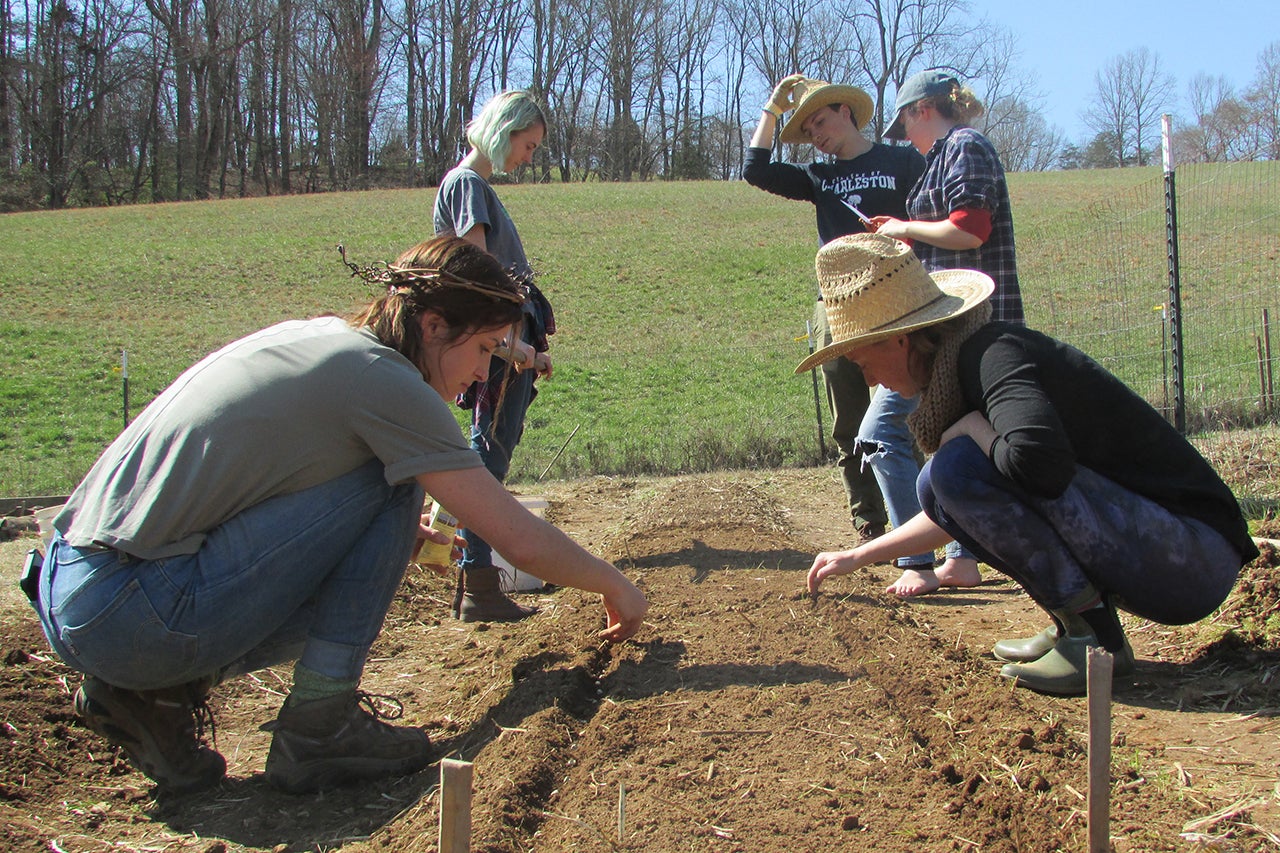Spring Break is a college phenomenon that often conjures images of raucous beach parties, trips to far-flung destinations and wild adventures. For some students at the College of Charleston, those may be the scenarios they’re experiencing this week. But for about 60 undergraduates, Spring Break, March 18-24, 2018, will take on a very different shape.
Alternative Break, a student club and program orchestrated through the College’s Center for Civic Engagement, has been sending students to different locations since 2004, engaging them in volunteer service that focuses on a variety of important social issues.
According to the center’s associate director, Chris Ciarcia, the students participating in this year’s program will be volunteering at five different sites. Their destinations include rural Tennessee; Selma, Alabama; and New York City among others. And the issues they’ll be working on as volunteers range from environmental justice to affordable housing to LGBTQ rights.
According to Ciarcia, these Alternative Break experiences are exceptionally impactful for students. They learn leadership and they learn empathy.

Alternative Break students working in Asheville, NC. (Photos courtesy of Center for Civic Engagement)
“Alternative Break really is a transformational learning experience for our students,” he says. “It’s full of personal growth and development opportunities. And those experiences enhance our students’ sense of civic responsibility and allows them to build competencies basic to democracy, most important of which are working among diverse populations to address unsustainable systems and working with those who have different perspectives.”
One group staying at the Narrow Ridge Earth Literacy Center in Washburn, Tennessee, will assist with organic gardening initiatives, conservation projects and outdoor recreation activities such as hiking and yoga. The educational aspects of this trip will include developing a better understanding for the need to conserve natural resources and the importance of engaging in environmental activism.
Another group traveling to Annapolis, Maryland, will work alongside staff members from the Chesapeake Bay Foundation, a water and aquatic species advocacy nonprofit. While a third group from the College will make its way to Asheville, North Carolina, to help address issues of affordable housing through a project with Habitat for Humanity.
The New York group will work with the world’s first and leading provider of HIV/AIDS prevention, care and advocacy – the Gay Men’s Health Crisis Center. Those students will serve meals to clients and help out with special projects. The Selma group will take part in nonviolence training and tour historic sites, including the National Voting Rights Museum and the Ancient Africa, Enslavement and Civil War Museum.
Perhaps most importantly, says Ciarcia, is that these experiences for students aren’t limited to just Spring Break.
“What isn’t well known,” he says, “is that these students who participate in Alternative Break spend months beforehand learning about the historical, political, social and economic factors that have led to the complex unsustainable systems they will be addressing during the break. Ultimately, we hope they evolve from viewing community service as charity to viewing community service as true solidarity. And that when they come back to campus, they are prepared to become advocates. The great thing is that there are enduring benefits for the community, and for the students as well. Several students who’ve done this in the past have ended up with full-time jobs after graduation, working with some of our community partners.”
Ciarcia adds, “I always tell the students that Alternative Break is a good place to start, but it should never be where you end. For everyone involved, it’s not about the difference they can make in the communities that they visit, though that is important. It’s about becoming agents for positive social change.”
Now that’s a spring break to be proud of.





